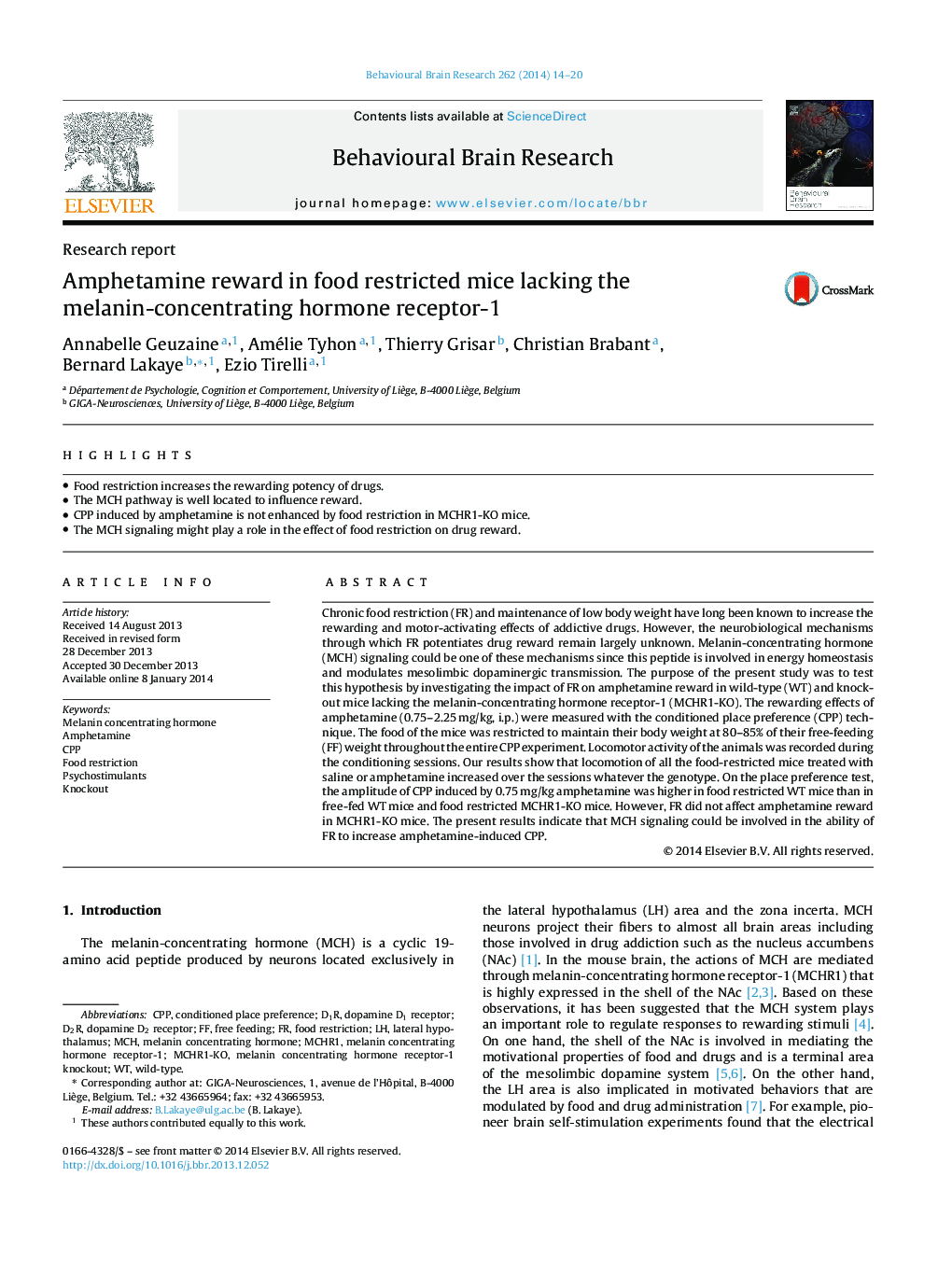| کد مقاله | کد نشریه | سال انتشار | مقاله انگلیسی | نسخه تمام متن |
|---|---|---|---|---|
| 4312547 | 1612970 | 2014 | 7 صفحه PDF | دانلود رایگان |
• Food restriction increases the rewarding potency of drugs.
• The MCH pathway is well located to influence reward.
• CPP induced by amphetamine is not enhanced by food restriction in MCHR1-KO mice.
• The MCH signaling might play a role in the effect of food restriction on drug reward.
Chronic food restriction (FR) and maintenance of low body weight have long been known to increase the rewarding and motor-activating effects of addictive drugs. However, the neurobiological mechanisms through which FR potentiates drug reward remain largely unknown. Melanin-concentrating hormone (MCH) signaling could be one of these mechanisms since this peptide is involved in energy homeostasis and modulates mesolimbic dopaminergic transmission. The purpose of the present study was to test this hypothesis by investigating the impact of FR on amphetamine reward in wild-type (WT) and knockout mice lacking the melanin-concentrating hormone receptor-1 (MCHR1-KO). The rewarding effects of amphetamine (0.75–2.25 mg/kg, i.p.) were measured with the conditioned place preference (CPP) technique. The food of the mice was restricted to maintain their body weight at 80–85% of their free-feeding (FF) weight throughout the entire CPP experiment. Locomotor activity of the animals was recorded during the conditioning sessions. Our results show that locomotion of all the food-restricted mice treated with saline or amphetamine increased over the sessions whatever the genotype. On the place preference test, the amplitude of CPP induced by 0.75 mg/kg amphetamine was higher in food restricted WT mice than in free-fed WT mice and food restricted MCHR1-KO mice. However, FR did not affect amphetamine reward in MCHR1-KO mice. The present results indicate that MCH signaling could be involved in the ability of FR to increase amphetamine-induced CPP.
Journal: Behavioural Brain Research - Volume 262, 1 April 2014, Pages 14–20
